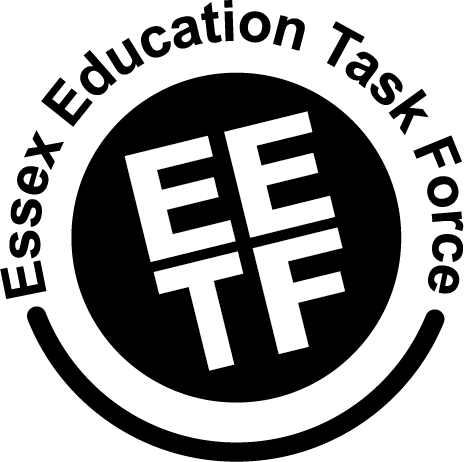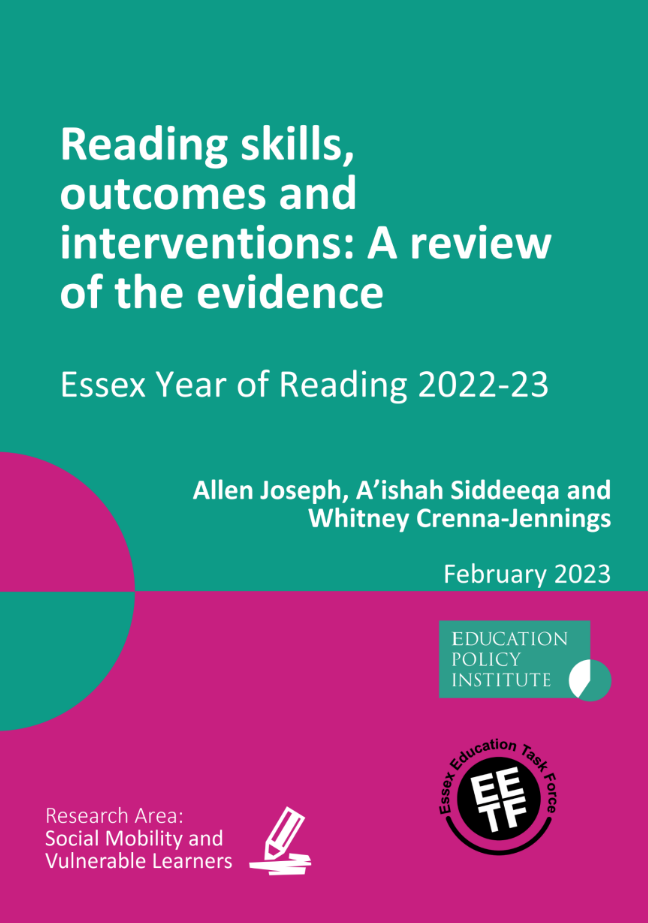The Education Policy Institute was funded by the Essex County Council Education Task Force to review the evidence around reading skills, related outcomes and interventions. The Task Force is an independent body created to oversee post-Covid recovery in education and young people’s mental health in Essex; a major focus of the Task Force has been launching the Essex Year of Reading 2022-23.
This review examines the evidence on the effect of reading on children and young people’s long term educational, occupational and health outcomes; the effectiveness of approaches used to enhance reading skills, including a critical discussion of the quality of the evidence; and aims to shine a light on what the literature has to say about aspects of Essex’s Year of Reading programme.
Children who cannot read effectively are likely to face significant challenges, and we know that early reading skills predict later reading skills. Children who are poor readers at age 8, for instance, were almost 20 times more likely to be poor readers at age 11. Evidence from England also suggests that prior attainment in early literacy skills, as measured by the Year 1 phonics check, is highly correlated with reading performance on the Progress in International Reading Literacy Study (PIRLS). As children grow older, disparities between proficient and poor readers may grow larger. Therefore, understanding the relationship between reading and later outcomes, as well as the evidence on interventions that strengthen reading skills remains important to the sector and policymakers alike.
This literature review recommends the following policy actions:
- The government and/or local authorities should commission research exploring approaches to reading instruction used in schools in addition to synthetic phonics instruction to help policymakers and educators better understand which approaches to reading instruction are most effective.
- The government and/or local authorities could consider a randomised control trial with a systematic synthetic phonics instruction as the intervention group, and an appropriate active and passive control group, to better understand whether phonics instruction is more effective than other approaches.
- In general, evaluations of interventions with longer follow-up periods are required to, first, build the evidence base on the long-term effects of interventions, and second, to consider how we can best extend the long-term effects of interventions that target word reading and language comprehension skills.
- Schools should monitor pupils’ progress for diminishing effects of decoding or language comprehension interventions.
- More research is required into how we can best support the development of reading skills in vulnerable pupils. Tutoring and cooperative learning appear as promising instructional methods for vulnerable children. However, the specific interventions and combinations of interventions that are effective, as well as the components of reading comprehension these interventions should be targeting, remains unclear for certain at-risk groups of learners. The government should first fund more efficacy trials that consider the complexities of recruitment and retention of samples of vulnerable children to better understand whether models from typically developing readers apply and the barriers to successful intervention for these groups.
Read the full review here:
The Essex Education Task Force was established by Essex County Council in April 2021 as an independent body. At the heart of its work across Essex lie Renewal, Equality and Ambition. The two key aims are:
- To minimise the impact of the pandemic on all children and young people as quickly as possible, with a three to five–year overview of phases of regeneration.
- To capture and promote current innovation and best practice across the education system in Essex.
An initial budget of £1.5 million has already been invested in supporting the work of pre–school and early years settings, schools, further education, governors and the voluntary sector. A major investment has focused on launching the Essex Year of Reading 2022.



